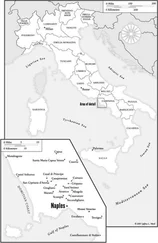Eric Ambler - Journey Into Fear
Здесь есть возможность читать онлайн «Eric Ambler - Journey Into Fear» весь текст электронной книги совершенно бесплатно (целиком полную версию без сокращений). В некоторых случаях можно слушать аудио, скачать через торрент в формате fb2 и присутствует краткое содержание. Год выпуска: 1940, ISBN: 1940, Издательство: Knopf, Жанр: Шпионский детектив, на английском языке. Описание произведения, (предисловие) а так же отзывы посетителей доступны на портале библиотеки ЛибКат.
- Название:Journey Into Fear
- Автор:
- Издательство:Knopf
- Жанр:
- Год:1940
- ISBN:9780307949967
- Рейтинг книги:5 / 5. Голосов: 1
-
Избранное:Добавить в избранное
- Отзывы:
-
Ваша оценка:
- 100
- 1
- 2
- 3
- 4
- 5
Journey Into Fear: краткое содержание, описание и аннотация
Предлагаем к чтению аннотацию, описание, краткое содержание или предисловие (зависит от того, что написал сам автор книги «Journey Into Fear»). Если вы не нашли необходимую информацию о книге — напишите в комментариях, мы постараемся отыскать её.
Journey Into Fear — читать онлайн бесплатно полную книгу (весь текст) целиком
Ниже представлен текст книги, разбитый по страницам. Система сохранения места последней прочитанной страницы, позволяет с удобством читать онлайн бесплатно книгу «Journey Into Fear», без необходимости каждый раз заново искать на чём Вы остановились. Поставьте закладку, и сможете в любой момент перейти на страницу, на которой закончили чтение.
Интервал:
Закладка:
“That is the right spirit. And now I suggest that you remain in this building until it is time for you to leave. We will make you as comfortable as possible. Mr. Kopeikin can collect your suitcase from the hotel. I will see that a doctor looks at your hand later on to see that it is still all right.” He looked at his watch. “The concièrge can make us some coffee now. Later, he can get some food for you from the restaurant round the corner.” He stood up. “I will go and see about it now. We cannot save you from bullets to let you die of starvation, eh?”
“It’s very kind of you,” said Graham; and then, as the Colonel disappeared down the corridor: “I owe you an apolegy Kopeikin. I behaved badly.”
Kopeikin looked distressed. “My dear fellow! You cannot be blamed. I am glad everything has been settled so quickly.”
“Quickly, yes.” He hesitated. “Is this man Haki to be trusted?”
“You do not like him either, eh?” Kopeikin chuckled. “I would not trust him with a woman; but with you-yes.”
“You approve of my going on this boat?”
“I do. By the way, my dear fellow,” he went on mildly, “have you a gun in your luggage?”
“Good heavens, no!”
“Then you had better take this.” He pulled a small revolver out of his overcoat pocket. “I put it in my pocket when I came out after you telephoned. It is fully loaded.”
“But I shan’t need it.”
“No, but it will make you feel better to have it.”
“I doubt that. Still.…” He took the revolver and stared at it distastefully. “I’ve never fired one of these things, you know.”
“It is easy. You release the safety catch, point it, pull the trigger and hope for the best.”
“All the same …”
“Put it in your pocket. You can give it to the French Customs officials at Modano.”
Colonel Haki returned. “The coffee is being prepared. Now, Mr. Graham, we will decide how you are to amuse yourself until it is time for you to go.” He caught sight of the revolver in Graham’s hand. “Ah-ha! You are arming yourself!” He grinned. “A little melodrama is sometimes unavoidable, eh, Mr. Graham?”
The decks were silent now and Graham could hear the sounds within the ship: people talking, doors slamming, quick businesslike footsteps in the alleyways. There was not long to wait now. Outside it was getting dark. He looked back upon a day which had seemed interminable, surprised that he could remember so little of it.
Most of it he had spent in Colonel Haki’s office, his brain hovering uncertainly on the brink of sleep. He had smoked innumerable cigarettes and read some fortnight old French newspapers. There had been an article in one of them, he remembered, about the French mandate in the Cameroons. A doctor had been, reported favourably on the state of his wound, dressed it and gone. Kopeikin had brought him his suitcase and he had made a bloody attempt to shave with his left hand. In the absence of Colonel Haki they had shared a cool and soggy meal from the restaurant. The Colonel had returned at two to inform him that there were nine other passengers travelling on the boat, four of them women, that none of them had booked for the journey less than three days previously, and that they were all harmless.
The gangway was down now and the last of the nine, a couple who sounded middle-aged and spoke French, had come aboard and were in the cabin next to his. Their voices penetrated the thin wooden bulkhead with dismaying ease. He could hear almost every sound they made. They had argued incessantly, in whispers at first as if they had been in church; but the novelty of their surroundings soon wore off and they spoke in ordinary tones.
“The sheets are damp.”
“No, it is simply that they are cold. In any case it does not matter.”
“You think not? You think not?” She made a noise in her throat. “You may sleep as you wish, but do not complain to me about your kidneys.”
“Cold sheets do not harm the kidneys, chérie.”
“We have paid for our tickets. We are entitled to comfort.”
“If you never sleep in a worse place you will be lucky. This is not the Normandie.”
“That is evident.” The washing cabinet clicked open. “Ah! Look at this. Look! Do you expect me to wash in it?”
“It is only necessary to run the water. A little dust.”
“Dust! It is dirty . Filthy! It is for the steward to clean it. I will not touch it. Go and fetch him while I unpack the luggage. My dresses will be crushed. Where is the W.C.?”
“At the end of the corridor.”
“Then find the steward. There is no room for two while I unpack. We should have gone by train.”
“Naturally. But it is I who must pay. It is I who must give the steward a tip.”
“It is you who make too much noise. Quickly. Do you want to disturb everyone?”
The man went out and the woman sighed loudly. Graham wondered whether they would talk all night. And one or both of them might snore. He would have to cough loudly once or twice so that they would realise how thin the partition was. But it was strangely comforting to hear people talking about damp sheets and dirty wash basins and W.C.’s as if-the phrase was in his mind before he realised it-as if they were matters of life and death.
Life and death! He got to his feet and found himself staring at the framed instructions for lifeboat drill.
“CINTURE DI SALVATAGGIO, CEINTURES DE SAUVETAGE, RETRUNGSGÜRTEL. LIFEBELTS.… In case of danger, the signal will be given by six short blasts on the whistle followed by one long blast and the ringing of alarm bells. Passengers should then put on their lifebelts and assemble at boat station number 4.”
He had seen the same sort of thing dozens of times before but now he read it carefully. The paper it was printed on was yellow with age. The lifebelt on top of the washing cabinet looked as if it had not been moved for years. It was all ludicrously reassuring. “In case of danger. …” In case! But you couldn’t get away from danger! It was all about you, all the time. You could live in ignorance of it for years: you might go to the end of your days believing that some things couldn’t possibly happen to you , that death could only come to you with the sweet reason of disease or an “act of God”: but it was there just the same, waiting to make nonsense of all your comfortable ideas about your relations with time and chance, ready to remind you-in case you had forgotten-that civilisation was a word and that you still lived in the jungle.
The ship swayed gently. There was a faint clanging from the engine room telegraph. The floor began to vibrate. Through the smeared glass of the porthole he saw a light begin to move. The vibration ceased for a moment or two; then the engines went astern and the water glass rattled in its bracket on the wall. Another pause and then the engines went ahead again, slowly and steadily. They were free of the land. With a sigh of relief he opened the cabin door and went up on deck.
It was cold but the ship had turned and was taking the wind on her port side. She seemed stationary on the oily water of the harbour but the dock lights were sliding past them and receding. He drew the cold air into his lungs. It was good to be out of the cabin. His thoughts no longer seemed to worry him. Istanbul, Le Jockey Cabaret, the man in the crumpled suit, the Adler-Palace and its manager, Colonel Haki-they were all behind him. He could forget about them.
He began to pace slowly along the deck. He would, he told himself, be able to laugh at the whole business soon. It was already half-forgotten; there was already an air of the fantastic about it. He might almost have dreamed it. He was back in the ordinary world: he was on his way home.
Читать дальшеИнтервал:
Закладка:
Похожие книги на «Journey Into Fear»
Представляем Вашему вниманию похожие книги на «Journey Into Fear» списком для выбора. Мы отобрали схожую по названию и смыслу литературу в надежде предоставить читателям больше вариантов отыскать новые, интересные, ещё непрочитанные произведения.
Обсуждение, отзывы о книге «Journey Into Fear» и просто собственные мнения читателей. Оставьте ваши комментарии, напишите, что Вы думаете о произведении, его смысле или главных героях. Укажите что конкретно понравилось, а что нет, и почему Вы так считаете.












